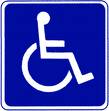MINT CANDY
 Today I went to a baby shower for my friend Priya's daughter, Nita. The shower was organized by Nita's sister-in-law Beata, a cheerful, extremely organized young woman. Baby-themed decorations, favors, and games abounded. Nita hauled in so many gifts that I had to leave before she got it all unwrapped. This is her third child; I can't imagine what she's going to do with all the stuff.
Today I went to a baby shower for my friend Priya's daughter, Nita. The shower was organized by Nita's sister-in-law Beata, a cheerful, extremely organized young woman. Baby-themed decorations, favors, and games abounded. Nita hauled in so many gifts that I had to leave before she got it all unwrapped. This is her third child; I can't imagine what she's going to do with all the stuff.Almost everyone there but me was a doctor. Priya is a radiologist married to a surgeon. Beata is a pediatrician married to a radiologist. Beata's father was a doctor, and her mother was a nurse. Nita rebelled and became a lawyer, but her husband is an osteopath. Nearly all their friends are--you guessed it--doctors married to doctors, with kids who are also doctors.
One of the games organized by Beata was a memory game. She walked around to each table carrying a tray full of baby-related objects, and let the women look at them for a few seconds. Paper and pencils were provided for us to list the objects we'd tried to memorize.
I was staring at the tray, considering my mnemonic strategy, when a woman at my table pointed to a rubber bulb and said, "I don't even know what that's called." "Aspirator," someone else replied. The A-word was all I needed. I quickly began alphabetizing the objects on the tray in my mind: aspirator - bottle - cup - diaper....
Well, then it started to break down. There was a bib, but I already had a "b." Eating bib, I told myself. Feeding spoon. Gerber baby food (even though the jar was labelled "Beech-nut"). Hardcover book. pIn. "J" block (I visualized the letter "J" on the block, even though it was an abcdef block). Key.
After a bit, we were told to write down what we remembered. I didn't need a baby-themed prize, so I kept quiet when the scoring was over and those with perfect scores were asked to identify themselves. An excited friend of Nita's carried off a pink-ribboned prize. Around me I could hear mutters of, "I don't have a good memory." "I only got six right." "I'm embarassed to say how many I remembered."
Wait a minute, I thought. These are a bunch of doctors. Nearly everyone in this room has gone to medical school. Even Nita, after passing the bar, took a bunch of pre-med courses to prove to her father that she could do it.
One thing all medical students have to do is memorize obscene amounts of information. Histology, gross anatomy, neuroanatomy, pharmacology, pathology, all crammed with lists...one worse than another. The devices are classic and legendary: for the twelve cranial nerves, for example, Olfactory, Optic, Oculormotor, Trochlear, Trigeminal, Abduceans, Facial, Auditory, Glosspharyngeal, Vagus, (Spinal) Accessory, and Hypoglossal, a common mnemonic is "On Old Olympus Towering Tops A Finn and German Viewed Some Hops." (Alternatively, "Oh, Oh, Oh, To Touch And Feel Virgin Girl's Vagina And Hymen!")
Or, to develop a consistent differential diagnosis in a clinical environment, try MINT CANDY:
Metabolic
Infectious
Neoplastic
Trauma
Collagen vascular disease
Allergies
N'ything else
Drugs
Youth (congenital).
Systems for memorizing are numerous. They've been around for thousands of years. The Method of Loci is attributed to Simonides of Ceos, which makes it around 2500 years old. It consists of imagining a set of rooms through which you move, and attributing to each item you want to memorize a striking and unusual image--the more bizarre, the better. To recall the information, you imagine yourself moving through the rooms, looking at the objects within. Sounds too unbelievably complicated to work, but it does, like a charm.
The Method of Loci always reminds me of a joke I heard when I was a kid. A Texas rancher is famous for being able to count innumerable head of cattle almost instantly. A Northerner comes to check him out and is amazed by his prowess. "That's unbelievable!" he exclaims. "How do you do that?" "It's easy," drawls the Texan. "I just count the hooves and divide by four."
The women at the baby shower had obviously mothballed their mnemonic strategies. I wonder about the lists themselves. Could they have scored any higher listing the twelve cranial nerves?


